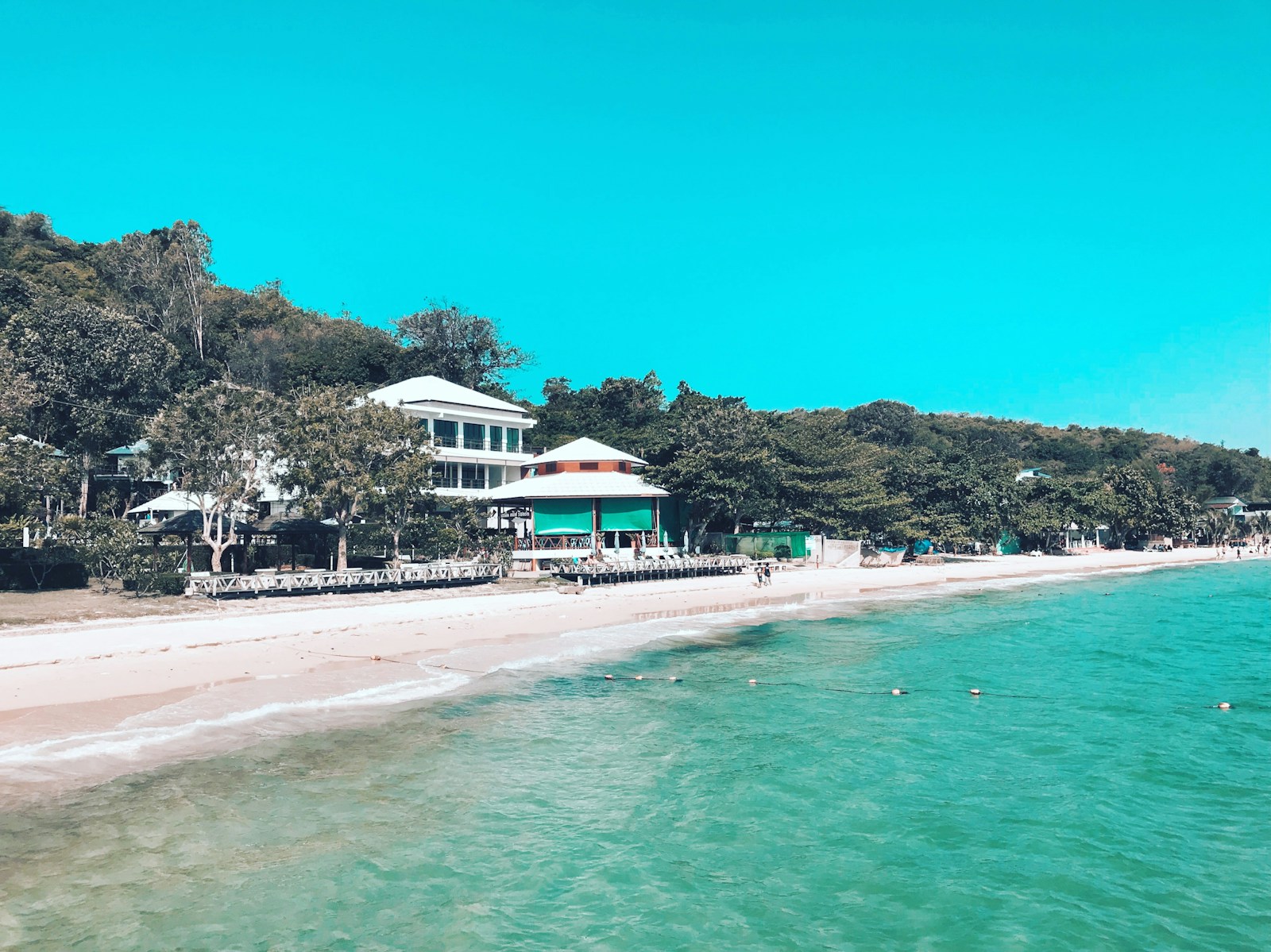Visiting a new country can be an exciting adventure, but it’s crucial to consider your safety. You might be wondering, “Is Syria safe to visit?” It’s a complex question with many factors to consider.
Syria, a country rich in history and culture, has experienced significant turmoil over the past decade. Although the situation is gradually stabilizing, safety concerns still exist.
In this article, we’ll delve into the current state of Syria, providing you with up-to-date information. We’ll also offer tips on how to stay safe if you decide to embark on this journey. Stay tuned as we navigate the complexities of traveling to Syria.
Is Syria Safe for Travelers?
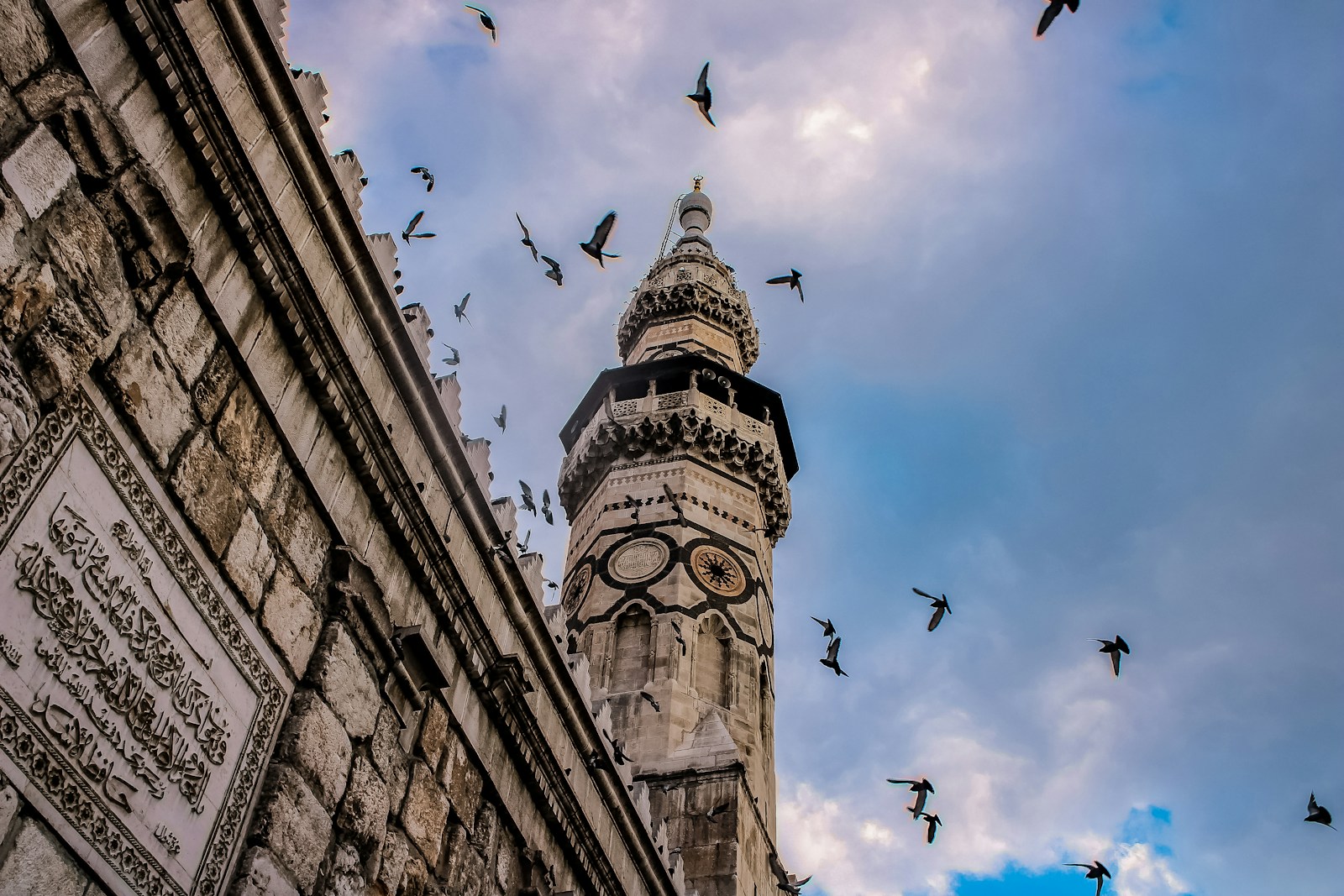
Delving into a renowned world of history and culture is certainly appealing, yet your safety should always come first. Let’s take a look at the current state of Syria from a safety standpoint.
Crime Rates and Statistics in Syria
Before venturing into any foreign country, it’s crucial to understand what the crime situation looks like. As for Syria, it has been through its share of turmoil in the past decade. Understanding local crime rates and statistics is a good way of gauging the level of potential risks involved.
This table chart elaborates on the general crime rates and statistics in Syria:
| Crime Category | High | Medium | Low |
|---|---|---|---|
| Violent Crime | X | ||
| Property Crime | X | ||
| Organized Crime | X | ||
| Kidnapping and Ransom | X | ||
| Political instability | X |
Don’t allow these figures to deter you completely. Many parts of Syria have started to stabilize and significant improvements are expected as time goes on.
Local Laws and Regulations to Consider
While contemplating your visit to Syria, don’t forget that you’ll need to abide by the country’s laws and regulations. Every country has a different set of rules and understanding them is essential for ensuring a hassle-free trip.
- Customs Regulations: Syria has stringent restrictions on what you can bring into the country. This includes food items, technology, and more.
- Visa Requirements: You must apply for a visa before your trip, and it’s important to keep up-to-date on the different visa types and requirements.
- Local Dress Code: Respecting the local culture is paramount, which often means adhering to a certain dress code in public places, especially religious ones.
Researching thoroughly thus helps you be prepared before setting foot in the country. While the decision to travel to Syria must be carefully considered and highly informed, don’t forget that every journey offers new opportunities to learn and experience life from a fresh perspective.
Is Syria Safe for Families?
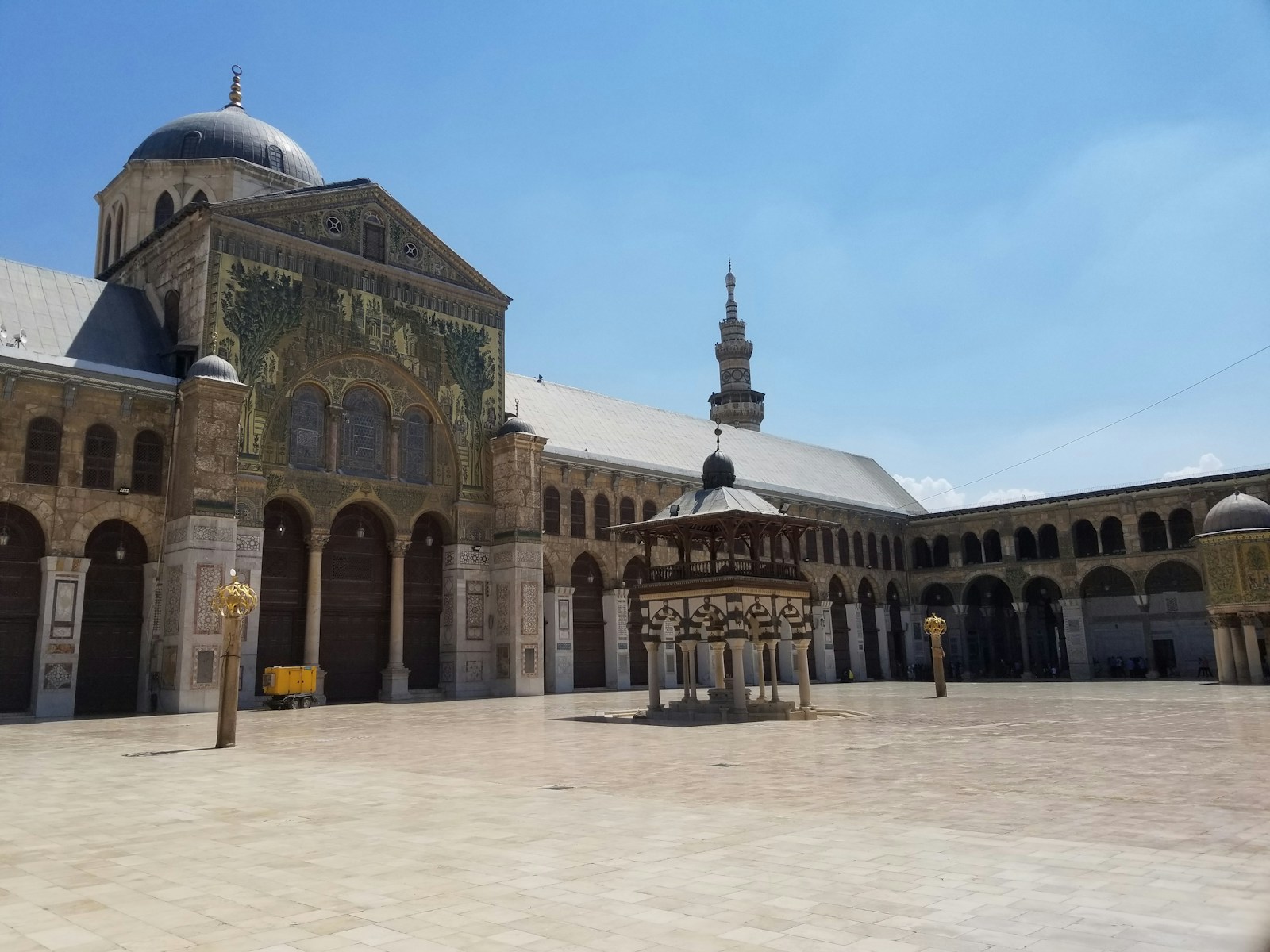
When planning a family visit abroad, safety becomes your topmost priority. Syria, with its rich culture and history, may appear to be an intriguing destination, but is it safe for families? Let’s delve deeper into this topic.
Currently, Syria’s crime rate is significantly higher than most countries, which is primarily due to ongoing conflicts. The kidnap risk is also reportedly quite high. According to the Global Peace Index, Syria has been ranked as one of the world’s most dangerous countries in recent years.
| Year | Global Peace Index Rank |
|---|---|
| 2019 | 163 |
| 2020 | 163 |
| 2021 | 160 |
Given these statistics, it’s imperative to note that safety isn’t guaranteed for anyone in Syria nowadays, let alone for families with young children. High-risk areas include the city of Aleppo, the northern town of Idlib, and the capital Damascus.
However, despite these known threats, some areas in Syria, mostly those under governmental control, may show relative calm. You might find locals going about their daily lives, children playing in the streets, and shops doing regular business.
Moreover, Syrians are known for their warm hospitality and will likely make you feel welcome. The awe-inspiring historical sites, succulent local cuisine, and vibrant markets contribute to Syria’s unique allure.
Abiding by local customs and laws is crucial in Syria, or in any country, to ensure your family’s safety. It’s vital to respect other cultures and to always maintain a low profile. When contemplating a trip to Syria, consider hiring a local guide or going through a reputable travel agency. They can provide you with accurate up-to-date information regarding safety precautions you need to take.
Also, be prepared for the potential language barrier. English is not commonly spoken in Syria so it’s strongly suggested to learn at least a few basic Arabic phrases prior to your trip.
Before you begin your journey to Syria with your family, remember to closely watch travel advisories and news updates. While Syria is a beautiful destination full of culture, the current situation makes it a complicated choice for family visits. The reward of experiencing a different culture must always be weighed against the risks involved.
Safety Landscape in Syria
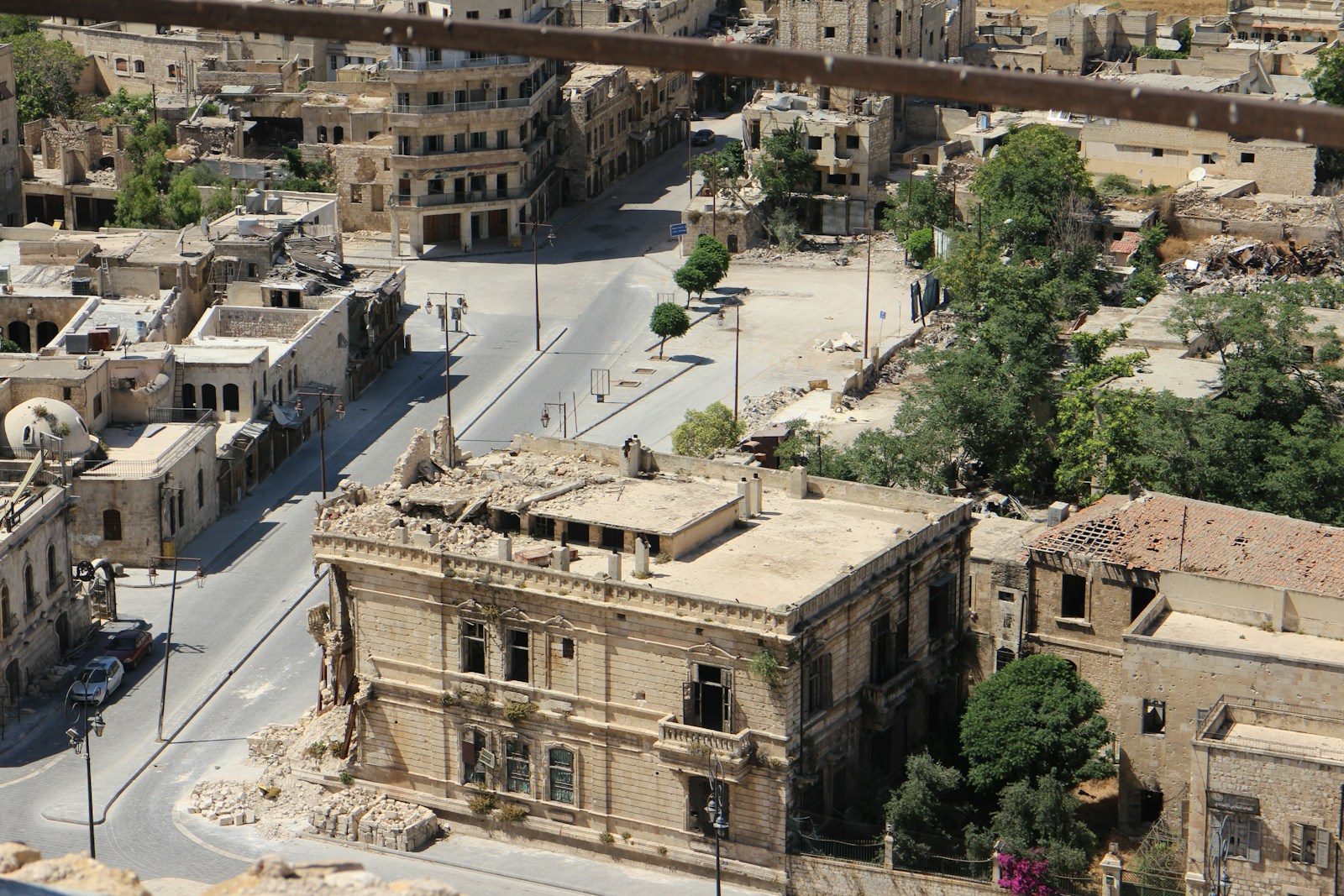
Understanding the safety landscape in Syria is essential when planning your journey. Despite alarming situations that persist in certain parts, the country’s safety conditions are not identical across its whole territory. It ranges from high-risk areas where severe conflicts continue to occur to zones under government control that appear comparably calm.
Dangerous Neighborhoods to Avoid in Syria
Known to be riddled with dangers, the idle touristic curiosity can turn perilous if you let your guard down. Cities like Raqqa and Idlib carry immense risk, particularly the latter being the last stronghold of various militant factions. Douma, Eastern Ghouta, can also be troublesome due to the remnants of past conflicts.
Outside these metropolitan maelstroms, some roads can be risky to traverse. The road connecting Homs and Hama, for instance, has been known to be a hotspot for hostile encounters and abductions.
It’s remarkably significant to have an informed itinerary. You’d be wise to stick closely to safer regions and limit travel to potentially dangerous areas.
Safest Places in Syria to Visit
Contrary to the high-risk locations, some areas provide not only relative safety but also captivating historical and cultural experiences. Latakia, Tartus, and Damascus are often referred to as the safest places in Syria.
Latakia provides a Mediterranean charm through its azure beaches and sun-kissed citrus groves. Tartus, on the other hand, carries an impressive history and breathtaking coastal views. Damascus, despite having witnessed numerous upheavals, still shines as a gem reflecting an impeccable fusion of ancient cultural heritage and contemporary advances.
Given this mixed bag of safety conditions, it’s wise to engage a reputable travel agency or a local guide who can assist you in planning a safe trip while allowing you to explore the country’s rich history and culture.
Monitoring the evolving situations frequently and making adjustments as needed is crucial. The US Department of State’s travel advisories can provide important updates to inform your decisions. Similarly, registering with the Smart Traveler Enrollment Program (STEP) helps access real-time alerts and make it easier to locate you in an emergency.
As the saying goes, “Knowledge is power,” and the more informed you are, the safer your journey can be. It’s not just about avoiding danger, but also not missing out on the enriching experiences that the apt locale can offer.
Emergency Services and Support in Syria
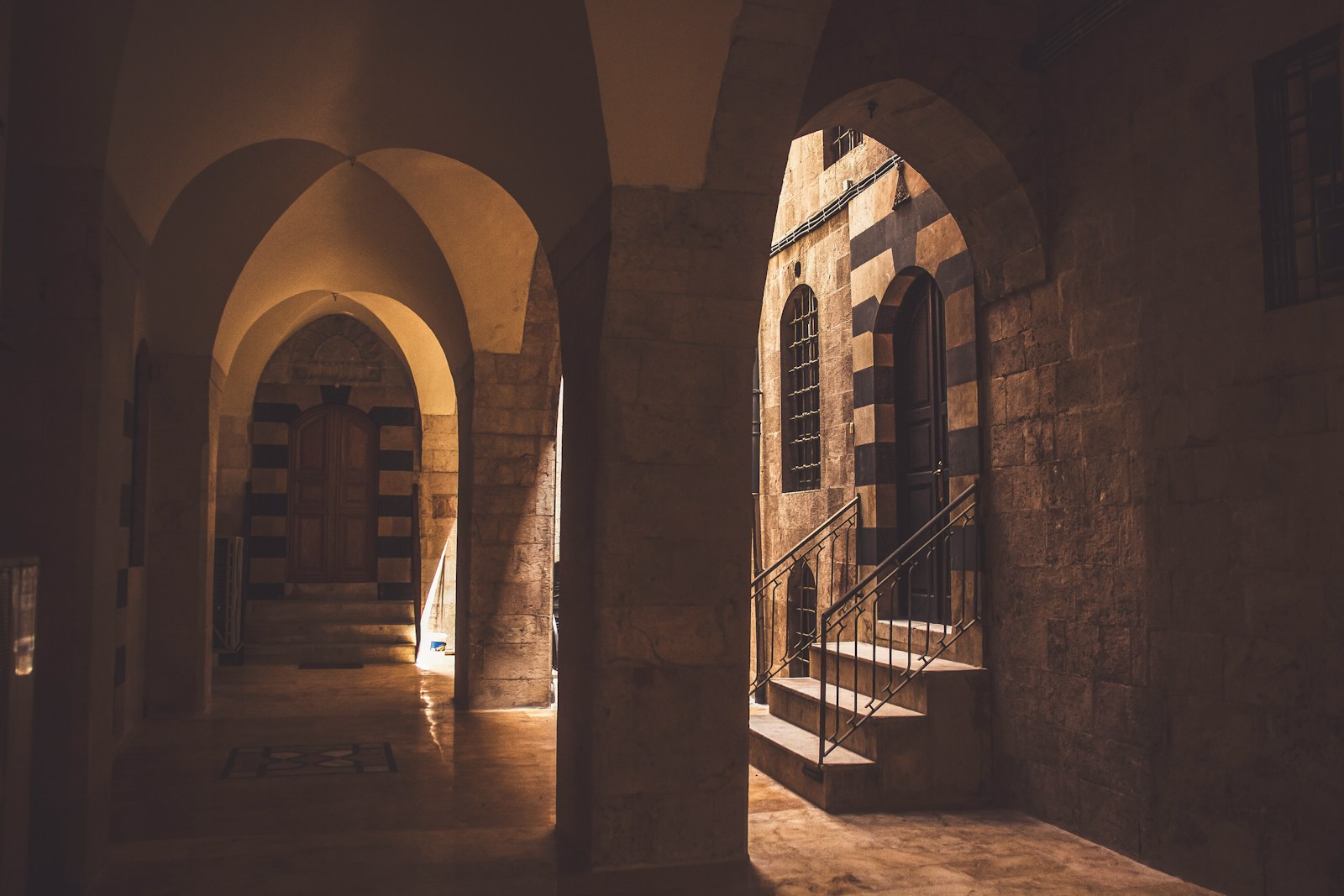
Taking into consideration the high-risk environment, it’s crucial to be aware of the emergency services available in Syria. This section helps you understand what you can expect in terms of healthcare facilities, police and medical services, emergency phone numbers, and how to access consular assistance when in Syria.
Healthcare Facilities in Syria
Healthcare in Syria has been severely affected by the ongoing conflict leading to a significant shortage of services, particularly in regions impacted most by the war. Hospitals and clinics are understaffed, under-resourced, and often overcrowded, making it challenging to provide adequate care. Keep in mind that you may need to provide proof of insurance upon admission – so ensure you are covered before you decide to travel.
Availability of Police and Medical Services
Don’t be fooled into thinking no help is available in case of emergencies. Police and medical services do exist but their response times can be erratic due to the volatile security situation and the lack of infrastructure. While local authorities strive to provide services as efficiently as possible, limitations are unavoidable. Be prepared for possible delays and ensure you have a good understanding of your location at all times for precise communication in case of emergencies.
List of Emergency Phone Numbers in Syria
As part of your travel prep, memorize basic emergency phone numbers. Here’s a handy list:
| Service | Phone Number |
|---|---|
| Police | 112 |
| Fire | 113 |
| Ambulance | 110 |
Remember, communication can be challenging given language barriers so be clear, stay calm, and give precise instructions.
How to Access Consular Assistance
Getting consular assistance in Syria can be a complicated task as many Western countries have shut their embassies due to the ongoing conflict. In case you find yourself in need of consular help, contact the nearest embassy or frequently check for up-to-date contact information on the official government websites of your home country while abroad.
Founded on these facts, it’s crucial to thoroughly consider potential risks before traveling to Syria. Being prepared for emergencies and knowing how to navigate services available can contribute a great deal to your overall safety. Protect yourself by remaining abreast of evolving situations, travel advisories, and alerts, and ensure you’ve got all possible safeguards in place.
Despite the ever-present risks, Syria remains a destination for intrepid travelers drawn to its rich history, cultural heritage, and geographical wonders. Do your homework, travel responsibly and respect local customs at all times while in the country. Pass a keen eye over the safety landscape in Syria, being mindful of dangerous neighborhoods to avoid and pinpointing the safest places to visit. This ongoing effort to map out your stay can result in a safer and more enriching travel experience.
Safety Tips for Nightlife
While Syria’s charm can be enticing, it’s essential to be smart about how you navigate its nightlife. After dark, the risks become more pronounced, especially in regions still grappling with conflict.
One critical factor to consider is the curfew. In some Syrian cities, local authorities impose curfews, and it’s in your best interest to respect them to avoid any trouble. You can get curfew information from your travel agency, hotel staff, or local police stations.
Staying within well-lit, populated areas is another important tip. Venturing out alone or into dimly lit, secluded spots can be potentially dangerous. Avoid places that are known for crime or that are far from the city center or your accommodation. Your hotel staff or local contacts would have a good understanding of the local scene and can guide you on this.
Public transportation can be a bit treacherous in Syria, mainly at night. Taxis or rideshares are your best bet for night-time transportation, but ensure you’re using a reputable company. It’s recommended to book your trip through your hotel or a trusted local contact.
Here are a few quick yet crucial pointers to keep in mind when exploring Syria’s nightlife:
- Dress Conservatively: Despite the nighttime setting, it’s crucial to maintain respect for local customs and dress modestly.
- Avoid Public Demonstrations: Given Syria’s political tumult, public demonstrations can erupt unannounced and devolve into violence.
- Avoid Excessive Alcohol: While Syria has some bars and pubs, overly indulging in alcohol can garner unwanted attention and potentially cloud your judgment and responses.
- Stay Informed: Keep abreast with the latest news on local developments and security advisories.
Another aspect you should be prepared for is the potential language barrier. Familiarizing yourself with some basic Arabic phrases or having a translation app on your phone could be very beneficial.
Regardless of the steps taken, no one can guarantee complete safety. Hence, it’s important to have the contact details of your nation’s embassy or consulate in Syria and to familiarize yourself with emergency numbers.
One can’t deny that Syria has a certain allure, particularly for those seeking the unusual. However, when it comes to your safety, it’s important to remember that risks escalate at night. These precautions will increase your safety levels while exploring and experiencing Syria’s unique charms.
Safety Tips for Public Transportation
As you navigate through Syria, it’s essential to note that the country’s public transportation system can present a unique set of challenges. While the assorted mix of buses, service taxis (servis), and microbuses (mikro) showcases the resilience of the Syrian people, it also exposes travelers to potential risks. But don’t fret! There are numerous ways to mitigate these risks and ensure a safe travel experience.
Firstly, plan your route meticulously. Gather accurate, timely information about bus routes, departure times, and stops. Rely on local knowledge wherever possible. Buses in Syria tend to have flexible schedules and oftentimes, you’ll find them operating based solely on demand rather than consistent timetables. Similarly, service taxis and microbuses can lack clear routes, rendering digital maps of limited use.
Next, avoid late-night public transportation. It’s best to travel during daylight hours whenever possible. Activities in Syria significantly die down after dark due to prevailing security concerns and curfews. Busy bus stations can become deserted spaces at night, and service taxis are fewer, potentially leaving you stranded.
Consider local customs while interacting on public transportation. For instance, it’s often expected for men to give up their seats for women. Also, remember that Syrians generally respect personal space, so don’t take offense if locals seem distant or avoid unnecessary interaction.
Lastly, be wary of overpacked public transportation. While it can sometimes be a norm in Syria for buses and microbuses to be crammed to capacity, overcrowding can heighten safety risks. It can contribute to reckless driving, and aid pickpockets, and if you’re unlucky, it can lead to uncomfortable situations given the prevailing language barrier. Always try to gauge the situation for yourself, and if it feels too crowded, consider taking a taxi.
Accompanying this advice, it’s always handy to have your embassy or consulate’s contact details ready in case of emergencies. Also, learn a few essential phrases in Arabic, even if it’s just “stop” (qif) or “where’s the bus station” (fayn al-mahatt al-otobis?) – it might save you in unexpected situations. Remember, safety comes first, especially when it comes to public transportation in Syria.
Local Customs to Stay Safe
Understanding and honoring local customs is a fail-safe way of assuring smoother travel experiences. When you’re visiting Syria, it’s important to understand cultural nuances for safer interactions. Remember, respect for local customs can also help you avoid unnecessary confrontations in a foreign land.
You may notice that Syrians generally have a conservative dress code. Particularly in the rural areas and small cities, individuals rarely wear Western-style clothing. When you’re out and about, dress modestly. Both men and women should consider wearing loose-fitting clothing that covers their shoulders and knees. In summary, try to blend in with the locals as much as you can to not draw undue attention to yourself.
In Syria, Friday is a religious day and many shops and businesses are closed. Don’t be surprised if you notice the streets are quieter than usual. It’s a day of worship for Syrians. Avoiding unnecessary travel during these times could help keep you away from any potential risks.
Another aspect of Syrian culture worth noting is the preference for not photographing military sites, police stations, and certain cultural artifacts. It’s best to ask permission before clicking your camera or smartphone shutter. Unauthorized photography can often invite unnecessary scrutiny and penance, which could prove to be an avoidable situation for foreign travelers.
Language can often act as a barrier if you’re not well-versed in Arabic. Though a limited number of Syrians do speak English, be prepared to navigate through basic Arabic phrases, especially when you’re out in smaller towns or interacting with older generations. Investing in a language guide or an interpreter can turn out to be a lifesaver in more ways than one.
Syrians are known for their generous hospitality and invitations to home-cooked meals are not uncommon. Accepting these invitations and expressing gratitude is an accepted norm. Remember, food is an essential part of their society and culture.
Informs decisions, safer travels, and unforgettable experiences often coexist. Being alert and mindful of where you are, the customs of the country, and the environment around you, does more than just assure your safety – it enriches your travel experience. Your next sections will continue to focus on practical ways to prepare for a visit to Syria, including packing essentials and crucial contact information.
Common Tourist Scams and How to Avoid Them
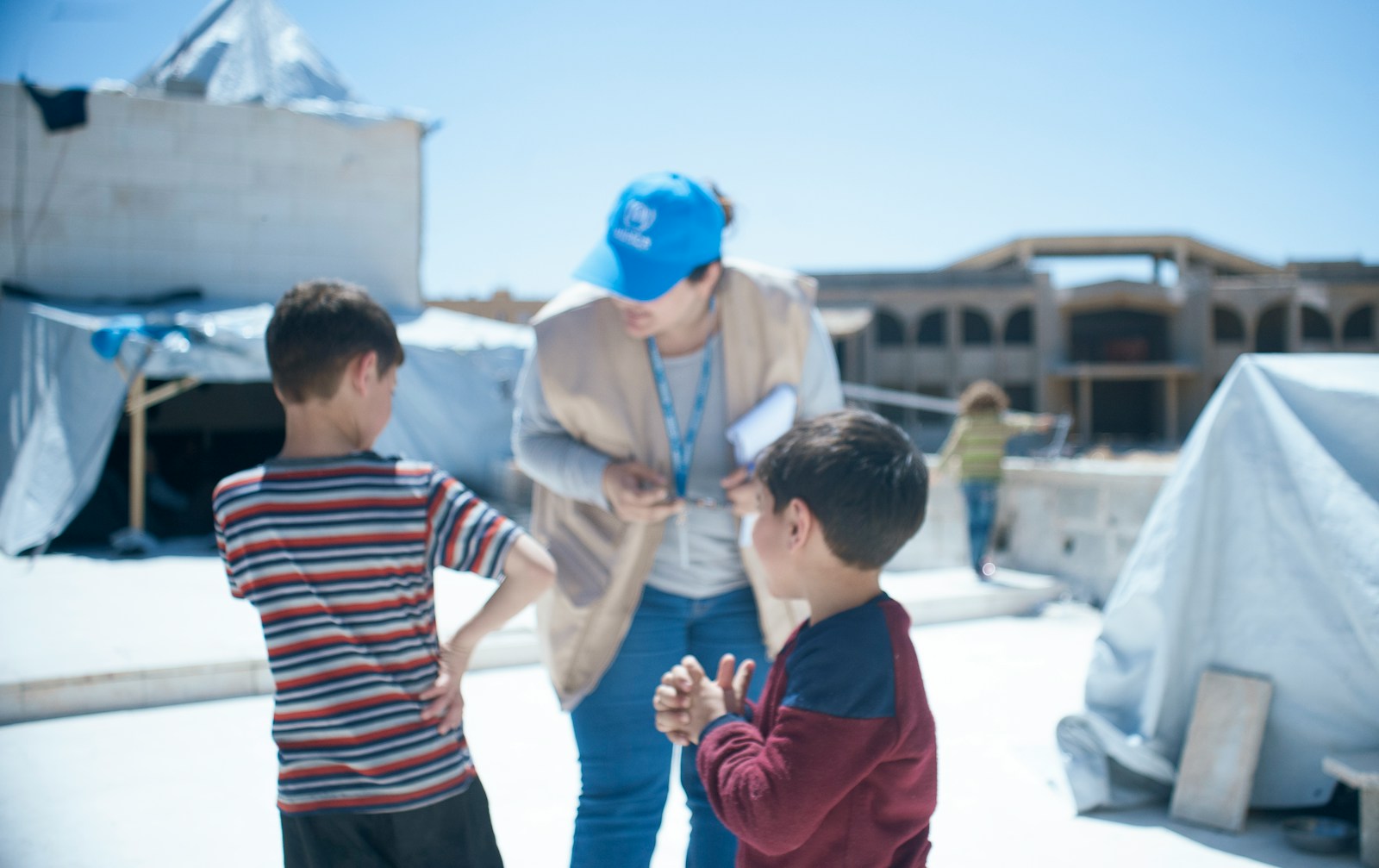
Syria, like any other country around the world, has its share of scammers who prey on unsuspecting tourists. Travelers should keep their wits about them and be aware of the most common tricks employed by local con artists.
The first common scam that you might encounter when visiting Syria is the ‘friendly local’ trick. You might be approached by someone offering to show you the hidden gems or less touristy areas of the city. However, at the end of your little tour, you’ll find yourself receiving a bill for their ‘services.’ Rule of thumb: if it seems too good to be true, it probably is. Avoid this scam by sticking to guides from trusted tour agencies.
Another common scam in Syria is the taxi scam. Drivers might attempt to take you on unnecessarily long routes or cite a broken meter to inflate the fare. Ensure you negotiate the taxi fare beforehand or insist on using the meter.
Next comes the ‘wrong change’ trick. Keep an eye on your bills and count your change before leaving a shop or restaurant, as you might receive less money than you’re entitled to.
Being informed about the prevailing exchange rate is crucial. The ‘black market money changing’ scheme is also something you should be wary of – you’ll end up with fewer funds due to an unfair exchange rate. Only exchange currency at certified shops or banks.
Above all, skepticism can prove to be your best defense against scams. If something doesn’t feel right, trust your instincts.
Remember, saturated and populated tourist regions are typically scam hotspots. Ensure you stay vigilant – scams not only lead to financial loss but can also ruin your travel experience entirely.
The safety of visitors is paramount and while Syria is taking substantive measures to curb scams and frauds, the onus also lies on tourists to keep themselves guarded.
When planning your trip to Syria, take the time to research various scams that travelers have encountered. Knowledge will give you an upper hand and equip you to deal with any unpleasant scenarios.
Let’s move on to discuss some key points that you ought to focus on when looking at lodging options in Syria.
Preparing for a Safe Trip to Syria
An important part of planning any trip is being prepared and taking the necessary precautions. After all, your safety is paramount. Here are some key steps to consider when planning to visit Syria.
Traveling Checklist for Syria
Understanding local customs and dressing accordingly should be at the top of your checklist. Dressing modestly, avoiding public shows of affection, and using simple Arabic phrases are a few ways to show respect for Syrian culture.
Ensure all of your travel documents such as passports, visas, and identity cards are up-to-date and at the ready. Some essentials may include emergency contact details and the local Syrian embassy address.
Emergency healthcare arrangements should be implemented. It’s recommended to get travel health insurance, bring necessary medical supplies, and be aware of allergies as medical services could be limited and delayed in Syria.
Weather and Travel Advisories in Syria
Stay informed about current weather conditions. Syria has a Mediterranean climate with hot, dry summers and mild, occasionally snowy, winters. Plan your attire and travel gear accordingly.
If any natural disasters like sandstorms are expected, you’d better reschedule your trip.
Consider country-specific advisories. The Syrian situation fluctuates and is affected by global and regional events. Even areas under governmental control could see occasional volatility. Keeping yourself updated with travel advisories, such as those from the US Department of State, is crucial.
Safety Tips for Solo Travellers
Traveling alone could have its unique set of challenges, but a little caution goes a long way.
Avoid exploring late at night. While Syria is known for its rich history and beautifully lit nights, it’s advised to limit outings to daytime hours and stick to populated locations.
Use trusted transportation services as far as possible. Having contact details of reliable taxi services can be of great assistance.
Stay connected with your local embassy, keep them informed about your stay, and let them know if anything doesn’t seem right. Your embassy can be a significant support if things go sour.
Traveling to Syria can be a breathtaking experience once precautions are rightly set. It’s always better to be prepared today than sorry tomorrow.
Conclusion: Is Syria Safe to Travel in 2024?
Navigating Syria’s safety landscape isn’t a walk in the park. It’s a high-risk destination with ongoing conflicts and a high crime rate. You can’t overlook the importance of staying informed, respecting local customs, and planning meticulously. Remember, even areas under governmental control can’t guarantee absolute safety.
To mitigate risks, consider hiring a local guide or using a trusted travel agency. Be prepared for potential language barriers and always monitor the latest travel advisories and news. Your itinerary should be well-informed, and you should have a good understanding of your location for precise communication in emergencies.
Despite the challenges, Syria can still be a destination for the intrepid traveler. But it’s crucial to do your homework, travel responsibly, and respect the local customs. Be vigilant of common tourist scams, and make sure your travel documents are up-to-date.
Ultimately, the decision to visit Syria should be made with a thorough understanding of the potential risks and a commitment to staying informed about evolving situations.
Is Syria safe to visit?
While some regions under governmental control may seem relatively calm, safety cannot be guaranteed in Syria due to the high crime and kidnap rates. It’s advised to continuously stay updated with travel advisories before making any travel plans.
What considerations should I take if I decide to visit Syria?
This article emphasizes the importance of respecting local customs and laws, hiring a local guide or utilizing a reputable travel agency, and knowing the local language. Also, please watch news updates closely before deciding to travel.
Can I access emergency services in Syria?
Emergency services such as healthcare facilities, police, and medical services are available in Syria, but their efficiency may be compromised due to the ongoing conflict and lack of infrastructure. Have the emergency numbers ready and ensure precise communication of your location during emergencies.
What precautions should I take to explore Syria’s nightlife?
Respecting curfews, staying in well-lit and crowded areas, avoiding public protests, moderate alcohol consumption, and being prepared for the language barrier are critical. Always have your embassy or consulate contact details.
Are there any specific safety tips for using public transportation?
Plan your routes carefully, consider local practices, avoid late-night and overcrowded travel, and have your embassy contact details and basic Arabic phrases ready.
How should i respect local customs in Syria?
Understanding and respecting local customs like dress codes, religious rules, photography restrictions, and hospitality norms are crucial in ensuring safer interactions and avoiding unnecessary conflicts in Syria.
What common tourist scams exist in Syria?
Common tourist scams involve tricks like ‘friendly local’, taxi scams, and the ‘wrong change’. Staying vigilant and not falling for such scams is essential when exploring lodging options in Syria.
What should be on my checklist when planning a trip to Syria?
Understanding local customs, updating travel documents, arranging for emergency healthcare, updating about weather and travel advisories, and following safety tips for solo travelers should all be on your checklist for a planned trip to Syria.


